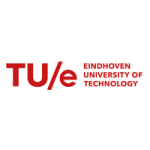项目介绍
Overview
MSSL is at the forefront of space science research and space instrumentation development. We work closely with international collaborators in academic institutions, major space agencies and industry partners such as NASA, ESA, JAXA and Astrium. Through interaction with colleagues in academia and industry, students build networks nationally and internationally and acquire valuable transferable skills. Former students have pursued successful careers in academia, industry, government-funded research, public policy and engagement, teaching, finance and IT.
Research areas
- Astrophysics: cosmology; galaxy formation and evolution; active galactic nuclei; gamma-ray; neutron stars and magnetars; exoplanet
- Theory: theoretical and computational astrophysics of systems from planets, the sun, stars and galaxies to the universe and their associated radiative and dynamical processes
- Imaging: automated 3D vision and applications; spectro-fluorescence and isotopologue imaging for life detection; data mining for planetary surface change detection; climate change from ECVs
- Planetary science: plasma interaction processes; giant planet magnetospheres; plasma at Mars, Venus, Titans, moons and comets; dust-plasma interactions; ionospheres; surfaces and atmospheres from rovers
- Solar physics: solar activity and its consequences within the solar system; emergence and evolution of solar magnetic fields; solar eruptions; solar wind formation
- Space plasma physics: local space environment, including physics of the heliosphere and terrestrial magnetosphere; magnetic reconnection, radiation belt and auroral particle acceleration; space weather
- Photon and particle detector development: particle detectors; charge-coupled devices; sub Kelvin cryo-coolers for space and ground based applications
- Weather and climate extremes: drivers, modelling and predictions for tropical and extra-topical storms; precipitation and temperature extremes worldwide; solar activity and cold winters
- System engineering: system modelling and optimisation, risk modelling and management, technology planning, project management, defining system engineering.
More information can be found on the department website: Space and Climate Physics MPhil/PhD
About this degree
Additional costs
For more information on additional costs for prospective students please go to our estimated cost of essential expenditure at Accommodation and living costs.
Accessibility
Details of the accessibility of UCL buildings can be obtained from AccessAble accessable.co.uk. Further information can also be obtained from the UCL Student Support & Wellbeing team.
Funding
NERC and STFC studentships may be available.
Scholarships relevant to this department are displayed below.
CSC-UCL Joint Research Scholarship
Value:Fees, maintenance and travel (Duration of programme)Eligibility:OverseasCriteria:Based on academic merit
UCL Research Opportunity Scholarship
Value:UK rate fees, a maintenance stipend, conference costs and professional development package (3 years)Eligibility:UKCriteria:Based on both academic merit and financial need
For a comprehensive list of the funding opportunities available at UCL, including funding relevant to your nationality, please visit the Scholarships and Funding website.
Careers
Recent graduates have taken up academic posts at NASA, the Harvard Smithsonian Astrophysical Observatory, Goddard Space Flight Center, European Space Agency and in academia, but others have entered professional occupations, within areas as diverse as IT and finance.
Employability
All of our PhD programmes require students to develop strong IT skills, manipulate large volumes of data and clearly present their work to a range of specialist audiences. As a result our graduates are highly numerate, technically competent, and articulate, with excellent problem-solving skills. This makes them attractive to a wide range of employers, as can be seen from their career destinations. Through international collaborations, interactions with industry and opportunities to work with schools and the general public, they also develop unique insight into the requirements of future employers. This gives them an invaluable competitive edge when beginning their chosen career.
Networking
PhD students are actively encouraged to collaborate widely with national and international colleagues through existing departmental links, as well as new ones. Many become involved with space projects, giving them vitally important opportunities to interact with key players and future employers in both academia and the space industry. There are opportunities for public engagement and policy involvement at all levels, including working with schools, the public, applying for funding, sitting on national subject-specific committees and meeting with politicians, all of which provide excellent networking possibilities.
Why study this degree at UCL?
Research training takes place at the Mullard Space Science Laboratory in Surrey, except for systems engineering where the students may work at the Bloomsbury Campus depending on their project.
MSSL offers a unique environment at the forefront of space science. Scientists work alongside top engineers, designing, building and testing instruments for launch in space and analysing the data from both these instruments and others. Most research projects use data from either ground-based or space-borne instrumentation and students benefit significantly from the laboratory’s involvement in numerous space missions. In addition to studying their chosen research topic, students are encouraged to increase their employability by learning other invaluable skills associated with the interdisciplinary nature of this laboratory such as space technology, and project management.
Department: Space & Climate Physics
Application and next steps
Applications
Students are advised to apply as early as possible due to competition for places. Those applying for scholarship funding (particularly overseas applicants) should take note of application deadlines.
This programme requires two references. Further information regarding references can be found in our How to apply section.
Application deadlines
All applicants30 July 2021
Deadlines and start dates are usually dictated by funding arrangements so check with the department or academic unit to see if you need to consider these in your application preparation. In most cases you should identify and contact potential supervisors before making your application. For more information see our How to apply page.
For more information see our Applications page.
录取要求
-
An upper second-class Bachelor’s degree, or a second-class Bachelor’s degree together with an MSc from a UK university in a relevant subject, or an overseas equivalent qualification.
联系方式
电话: +44 (0) 20 7679 2000相关项目推荐
KD博士实时收录全球顶尖院校的博士项目,总有一个项目等着你!






